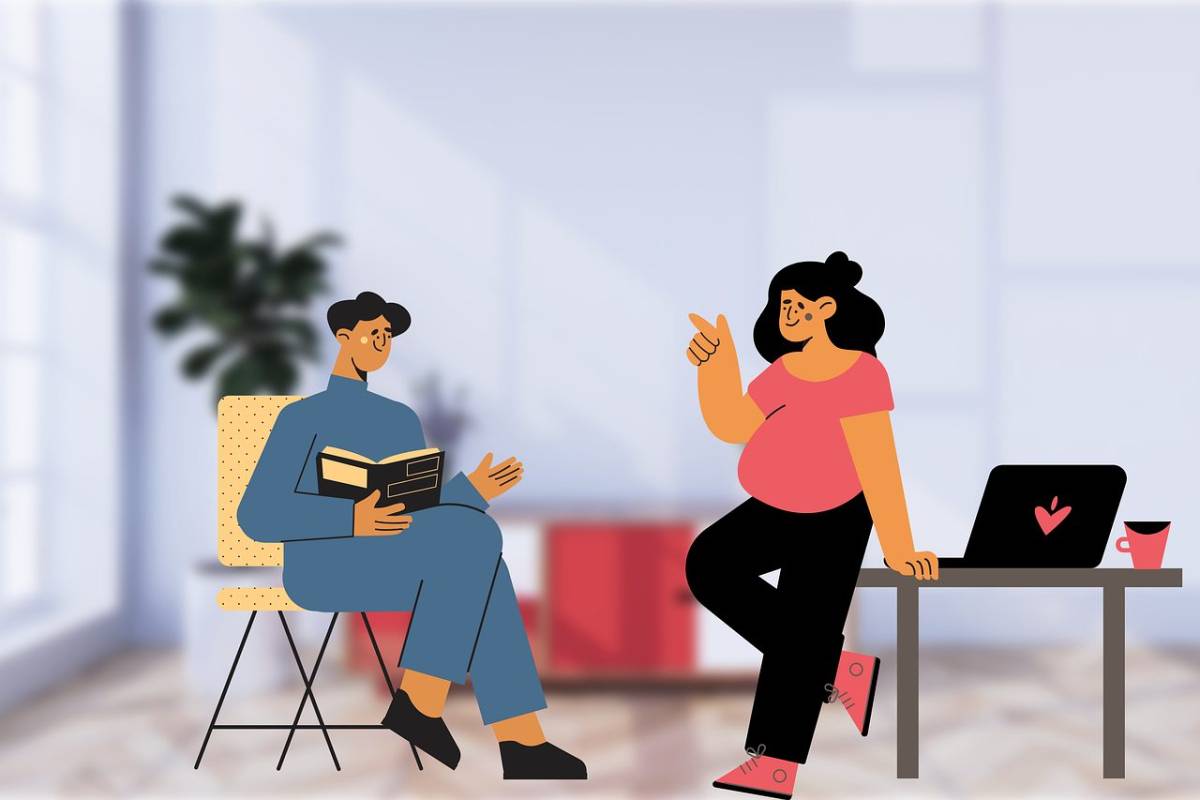Some people think that if a relationship is good, it will be "easy" and not be "work."
They are both correct and completely wrong.
As with most relationship advice, this does not apply if you are in a relationship with a bad actor or that’s abusive. See the National Domestic Violence Hotline and the National Coalition Against Domestic Violence for adults, as well as Youth.gov for teens.
First, all relationships require some degree of work. A partner once described it as "putting gas in the tank of the relationship." You need gas in the tank for the relationship to go. Some days one person can put in more gas. Some days it’s the other(s). But — in a healthy relationship — everyone involved should be contributing roughly the same amount.
But there’s a second, sneakier way that it’s both completely right and completely wrong.
This image, shared by Dr. Elizabeth Fedrick, illustrates:
The text reads:
"relationships are work" means:
THIS:
- Learning and re-learning each other
- Actively pursuing each other’s inner worlds & asking more questions
- Having vulnerable conversations
- Learning to manage your triggers
- Trying harder to find middle ground
- Choosing to be patient & have grace
- Finding ways to be safe during conflict
- Taking the steps to repair after conflict
- Learning to give & receive help
- Understanding that your partner’s needs are valid too
NOT THIS:
- Tolerating repeated disrespect
- Ongoing cycles of fighting, breaking up, and getting back together
- Constant criticism & trying to control
- Expectations of meeting their needs without being told what they are
- Getting "over it" when you’ve been hurt
- Going days without talking or engaging
- Feeling mostly discontent or unhappy
- Having your needs repeatedly ignored
- Boundaries frequently violated
- Constantly walking on eggshells
This applies for all relationship styles. The damnable part of it is, after you’ve endured the right-hand (NOT THIS) column for a long time, it seems like a lot MORE work to do the left-hand (THIS) column.
And for good reason. If your partner(s) are not acting in good faith, if the relationship style is confrontational rather than collaborative, then the "NOT THIS" column is what you’re used to. You’re used to being attacked, and anything offered as a compromise is seized wholesale.
Even worse, when you’re used to the "NOT THIS" category, it can be hard to see things in the "THIS" category for what they are. Your partner asking questions can be seen as argumentative or controlling. When they express their needs, it can seem like demands. And so on.
I don’t say this lightly; I’ve done it myself.
As I was recovering from an emotionally abusive relationship, I became hypervigilant about protecting myself from further emotional manipulation. Any behavior that even vaguely reminded me the abuse that I suffered through got classified as abusive and manipulative … and everything reminded me of that abuse.
I really hurt some people badly during that time. People who didn’t deserve it. People who cared about me and were doing their best to stay in the "THIS" category.
Not only did my behavior while recovering from abuse hurt others, but it actively made my life more difficult by driving away those who cared about me.
Nearly every adult person has some baggage, and has experienced the "NOT THIS" category in relationships — sometimes due to bad actors, sometimes due to flawed people making mistakes.
You must have those "THIS" conversations with the people in your relationships, particularly if they’re difficult.
Because if you approach your relationships from the "THIS" column, you are not guaranteed that things will go well.
But if you approach it from the "NOT THIS" side, you are the person guaranteeing that the relationship will be dysfunctional.

